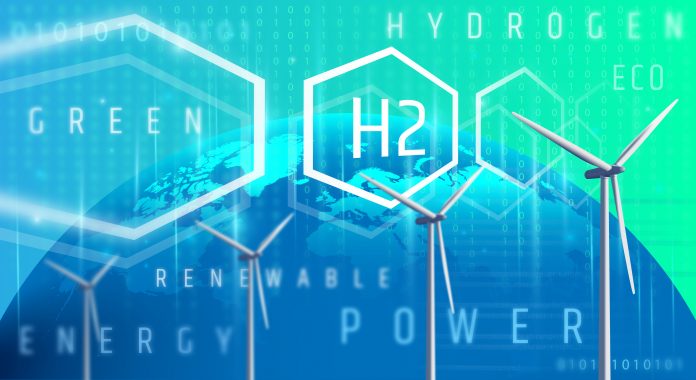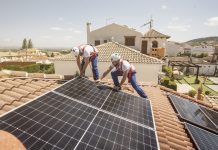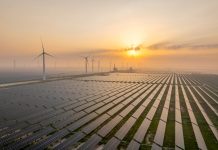Maiko Shimmura, from the New Energy and Industrial Technology Development Organization (NEDO), details Japan’s efforts toward increasing the use of hydrogen energy
Hydrogen energy is perceived as a secondary source of energy which can contribute to improving energy security and environmental problems, because it can be generated from various resources such as fossil fuels, by-products of industrial processes, and electricity derived from renewable energy and does not emit gases such as CO2 in the utilisation phase. In addition, as hydrogen is related to a wide variety of fields such as automobile, electric equipment and material, it is expected to lead to industrial vitalisation.
Hydrogen energy with the characteristics as described above is perceived as a promising source of energy toward the realisation of a low-carbon society, and various countries are expanding their government-led efforts. This article introduces Japan’s efforts toward increasing the use of hydrogen energy.
Japan’s policy on hydrogen energy
In 2017, the Japanese Government concluded the “Basic Hydrogen Strategy” to accomplish a world-leading hydrogen-based society. The strategy shows future visions toward 2050 and also serves as an action plan to accomplish the visions by 2030. The strategy sets a goal that Japan should reduce hydrogen costs to the same level of conventional energy and to achieve the goal, provides integrated policies across ministries ranging from hydrogen production to utilisation under the common goals.
As a national research and development organisation, New Energy and Industrial Technology Development Organization (NEDO) is working on the research and development of hydrogen energy-related technologies described in the following section based on the above policy.
Japan’s efforts: Fuel cells
Fuel cells, which are a clean and energy-efficient power-generating device, are essential for reducing CO2 emissions.
In Japan, the commercial realisation of a household fuel cell system (ENE-FARM), as well as commercial and industrial fuel cells was achieved in 2009 and 2017, respectively. And in 2014, a fuel cell vehicle (FCV) was put on sale in Japan ahead of other countries. Currently, the technical development contributing to the improvement of power generation efficiency, durability, and productivity, which are directly linked to cost reduction as well as the efforts toward the expansion of the new use of fuel cell unit, is being promoted to further expand the spread of stationary fuel cell and FCV.
On the other hand, while 137 hydrogen charging stations have been established in Japan by the end of December 2020, it is necessary to further reduce the maintenance and operation costs for self-sustaining expansion of the spread of such stations. Toward the achievement of self-sustainment by the late 2020s, a reduction in the costs required for establishing and operating hydrogen charging stations, as well as technical development, data acquisition, and the preparation of a draft standard toward the optimisation of national regulations are being promoted.
Hydrogen power generation/international supply chain
Hydrogen power generation is expected to be an effective measure for realising low-carbon and decarbonised thermal power generation. For gas turbines which can combust both hydrogen and natural gas, as well as the ones for hydrogen exclusively, NEDO is addressing the resolution of problems such as the reduction of NOx generation during combustion and the prevention of damage to the combustor due to backfire. And in 2018, a 1 MW-class gas turbine exclusively for hydrogen was installed in an urban area for the first time in the world to perform a verification test of the energy supply system for supplying heat and electricity to the area.
On the other hand, as a system which can supply a large amount of hydrogen in a stable manner is essential to realise a hydrogen power generation system: the efforts to establish an international hydrogen supply chain for producing hydrogen from untapped foreign resources and transporting it to Japan are being promoted. NEDO has conducted an international hydrogen transportation verification test using organic hydride as the hydrogen carrier. And NEDO is also planning to perform the world’s first verification test using a liquid hydrogen carrier.
Power to gas
While renewable energy has been increasingly introduced, the adjustment of the balance of electric power supply and demand is becoming an issue. In order to solve it, the concept of “Power to Gas” for converting excess electricity generated from renewable energy into hydrogen to store and utilise it is attracting much attention.
In March 2020, NEDO opened the “Fukushima Hydrogen Energy Research Field (FH2R),” a hydrogen production research facility equipped with the world’s largest 10 MW water electrolysis system. In this facility, NEDO is verifying the optimal operation and control system technology by combining the production and storage of hydrogen with adjustment of the supply and demand balance of the electric power system.
Conclusion
As Prime Minister Suga declared in October 2020 that Japan would aim for the realisation of carbon neutrality by 2050, there are increasing expectations concerning the roles hydrogen can play. For further hydrogen cost reduction, it is important to design how hydrogen should be utilised in the entire energy system in the future, such as by integration with renewable and existing energies, while enhancing production, transportation and utilisation technologies in a unified manner. NEDO will promote technical development projects based on this, as well as aim for the full-scale spread of hydrogen energy, through efforts toward international collaboration and awareness-raising activities for young people who will play a major role in future society.











